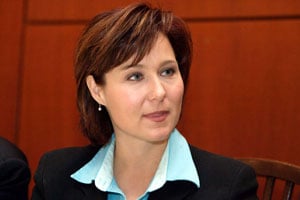
Most pundits have discounted the likelihood of a fall provincial election this year, but Christy Clark has not repudiated her statement that she will violate the set election date specified in Section 23 of BC's Constitution Act. Clark would likely be supported if she amended the Act to change the next election to the fall of 2012, with subsequent elections every four years thereafter. I believe she will call it when the polls show she can win, unless of course she runs out of time and hits the May 14, 2013 required election date.
Public opinion polls provide what we call the horserace numbers (party preferences), sometimes broken down by region, gender and age. The last Mustel Group provincial voting intention poll in May put the Liberals at 38 per cent and the NDP at 35 per cent. The last Angus Reid poll in March put the Liberals at 43 per cent and the NDP at 38 per cent. A new Angus Reid poll is expected in September once the result on the HST referendum is known.
Political operatives are as interested in the horserace numbers as they are in the kind of detailed argument testing that drives advertising campaigns. That kind of polling, and associated focus groups, seeks to determine what arguments, and what precise wording, changes voting intention. The premier could call an election even though behind in the horserace numbers if she were confident that she could move the numbers by election day; she would be foolish to call an election, even if ahead in the polls, if she knew the opposition had arguments that would put them ahead by the time of the vote.
Make or break ridings
Whenever the election is called, particular attention will be paid to the constituencies which were won by narrow margins in 2009. The Liberals and NDP, possibly joined by the Greens and Conservatives, will run candidate in all 85 constituencies but it is unlikely that a Liberal would lose in West Vancouver -- Capilano where Ralph Sultan had a winning margin of 53 per cent (calculated as the excess of his vote over the NDP divided by the total of all valid votes cast). Likewise, the NDP appears to have a solid grasp on Surrey -- Green Timbers where Sue Hammell had a winning margin of 49 per cent. NDP leader Adrian Dix and Conservative leader John Cummins both talk about appealing to people who didn't vote last time, but parties know it is easier to win swing voters who regularly vote than it is to get non-voters to get out to the polls.
In 2009, there were 13 constituencies where the Liberal candidate and eight constituencies where the NDP candidate won by less than 10 per cent. That includes Cariboo North where Bob Simpson, whose winning margin was only four per cent, now sits as an independent.
The 13 weak Liberal constituencies with winning margins shown in parenthesis are: Surrey-Tynehead (nine per cent), Vernon-Monashee (five per cent), Vancouver-Fairview (five per cent), Comox Valley (five per cent), Boundary-Similkameen (five per cent), Vancouver-Fraserview (four per cent), Burnaby-Lougheed (four per cent), Burnaby North (three per cent), Kamloops-North Thompson (three per cent), Oak Bay-Gordon Head (two per cent), Saanich North and the Island (one per cent), Cariboo-Chilcotin (one per cent) and Maple Ridge-Mission (0.4 per cent). Some incumbent MLAs, like Kash Heed, Harry Bloy and Margaret MacDiarmid, are household names because of their records. It will be interesting to see if Terry Lake and Ida Chong, members of the weak group, were helped or hurt by failed recall campaigns. I expect the campaigns strengthened their organizations and put them in a stronger position for the next election.
The seven weak NDP constituencies represented by an NDP MLA are: Delta North (nine per cent), Fraser-Nicola (six per cent), Stikine (five per cent), Coquitlam-Maillardville (three per cent), Burnaby-Deer Lake (three per cent), Saanich South (two per cent), and Maple Ridge-Pitt Meadows (one per cent). Harry Lali has won four elections; I expect he'll win again in Fraser-Nicola. Kathy Corrigan has created a high profile; I expect she'll increase her winning margin. The other seats are not safe bets, and the candidates need to spend every possible minute door knocking. Mainstreeting, waving from buses or using phone banks are poor substitutes for the hard work of going door-to-door to meet voters face-to-face. There isn't enough time in a 28-day election campaign for one person to canvass a significant portion of any constituency; the door-to-door work needs to begin now for any candidate who is serious about winning.
Too risky now?
The magic number for forming government is 43 MLAs, although a workable majority requires a few more seats than that. The Liberals currently hold 49 seats, the NDP 33, and there are two independents, one elected as such. To form government, the NDP must defeat at least six Liberal incumbents as well as hang on to all of the current NDP seats, or defeat an additional Liberal incumbent for each NDP incumbent that is defeated. That is not an insurmountable task for Adrian Dix and the NDP. Christy Clark and her advisers know that, which is why she may hesitate before rushing into an early election. ![]()
Read more: Politics














Tyee Commenting Guidelines
Comments that violate guidelines risk being deleted, and violations may result in a temporary or permanent user ban. Maintain the spirit of good conversation to stay in the discussion.
*Please note The Tyee is not a forum for spreading misinformation about COVID-19, denying its existence or minimizing its risk to public health.
Do:
Do not: